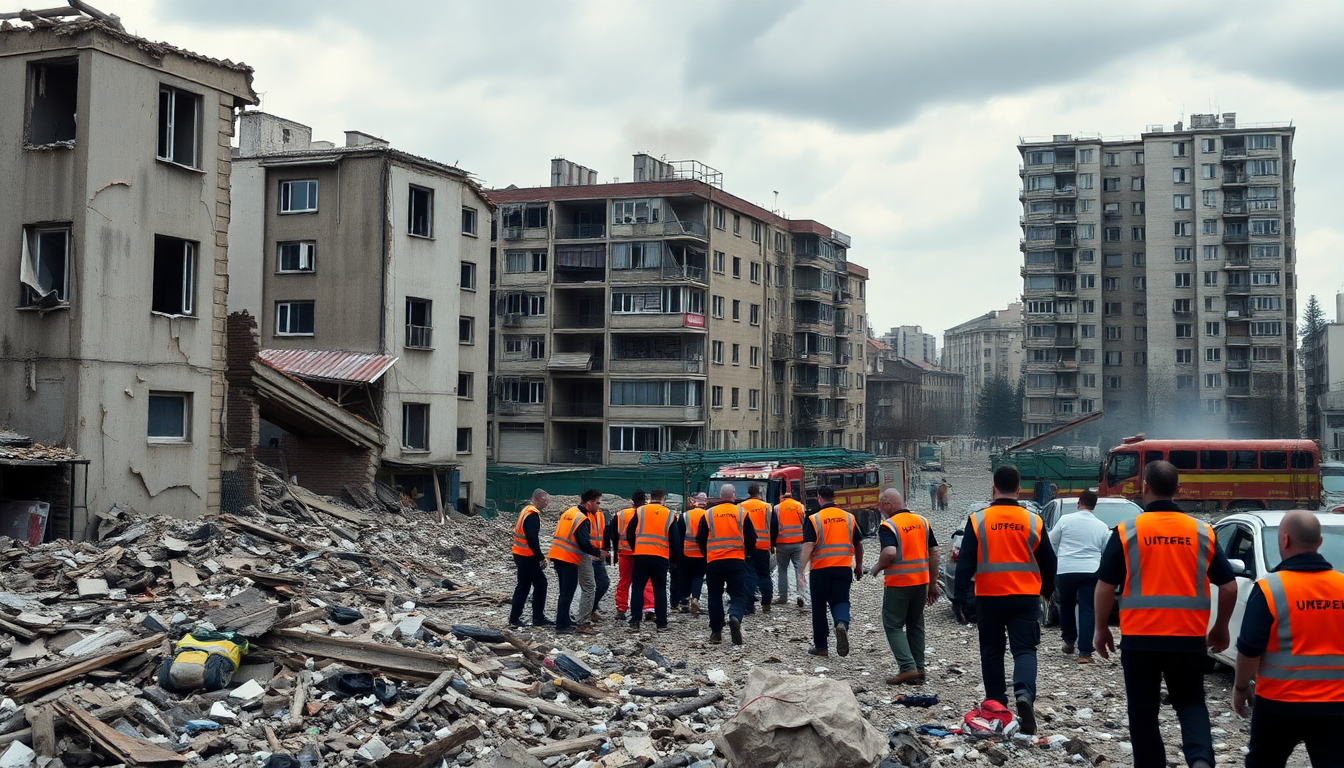Table of Contents
The recent military actions in Kharkiv, Ukraine, have once again brought to light the harsh realities of the ongoing conflict. A series of missile and drone strikes has led to heartbreaking casualties, including the tragic loss of a young child, with many others injured.
As the world watches these developments unfold, key leaders are engaging in discussions aimed at finding a pathway to peace amid the chaos.
Escalation of Attacks in Kharkiv
In a shocking turn of events, Kharkiv—Ukraine’s second-largest city—was rocked by a ballistic missile attack that struck a residential area late Sunday night.
This devastating incident claimed the lives of three individuals, including a two-year-old boy, and left at least 17 others injured. Among those hurt were six children aged between 6 and 17, highlighting the indiscriminate nature of this violence.
Local officials have noted that the casualty count may continue to rise as rescue teams work tirelessly to sift through the rubble in search of survivors.
Amidst the wreckage, a glimmer of hope emerged when rescue teams successfully pulled a woman alive from the debris, reminding us of the incredible resilience of the human spirit even in the darkest times.
Kharkiv, strategically located near the Russian border, has been a frequent target of Russian military operations since the invasion began in February 2022, with the aim of crippling Ukrainian resistance.
International Response and Diplomatic Efforts
These attacks come at a critical moment, as U.S.
President Donald Trump is set to host Ukrainian President Volodymyr Zelensky along with other European leaders to discuss potential resolutions to this ongoing conflict. The urgency of their meeting is made even more pressing by the recent violence, highlighting the need for a substantive peace agreement that addresses the core issues fueling the war.
In the midst of this turmoil, the Trump administration has emphasized that both Russia and Ukraine must find common ground in any proposed peace deal. Recent comments from Russian President Vladimir Putin, suggesting territorial claims over the Donetsk region, have raised significant concerns about the feasibility of negotiations. Meanwhile, Zelensky remains unwavering in his commitment to not conceding any land not already occupied by Russian forces.
Discussions in Washington are expected to shift focus from temporary cease-fires towards establishing a long-term framework for peace. This change reflects a growing understanding that a true resolution requires addressing the fundamental grievances that have fueled this conflict.
The Human Cost of Conflict
As the situation in Kharkiv continues to develop, the human cost of this conflict remains glaringly obvious. Each missile strike and drone attack not only claims lives but also leaves deep scars on the community. The trauma endured by survivors, especially children, must not be underestimated. The ongoing violence disrupts daily life, instilling fear and uncertainty in the hearts of residents.
The international community’s response to these events will play a crucial role in shaping the future of Ukraine and its people. As leaders gather to discuss peace, it’s vital to remember the lives at stake and the urgent need for a resolution that prioritizes humanitarian concerns and the restoration of stability in the region.
In conclusion, the ongoing crisis in Kharkiv underscores the pressing need for a concerted international effort to end the violence and pave the way for lasting peace. As discussions progress, the world watches closely, hopeful for a future where such tragedies fade into distant memories.





